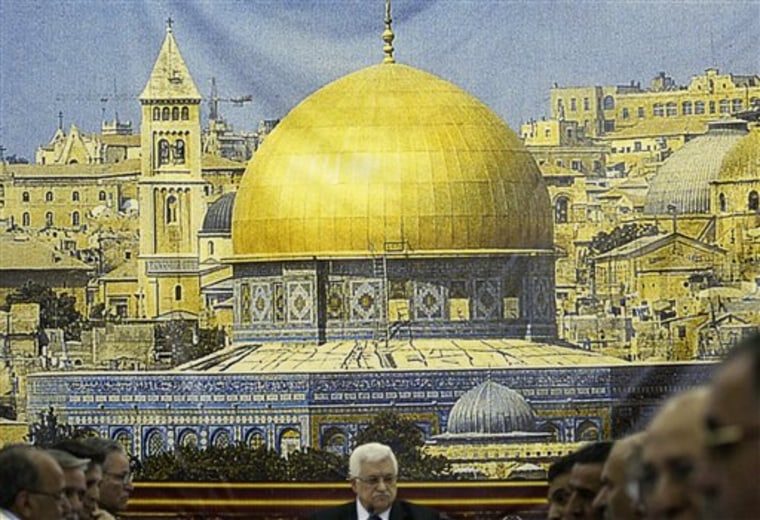Palestinian leaders gave their backing for indirect peace talks with Israel, clearing the way for the Obama administration's first sustained on-the-ground Mideast peace effort.
U.S. Mideast envoy George Mitchell will now shuttle between the Israeli and Palestinian leaders for up to four months to try to narrow the vast gaps on the terms of Palestinian statehood.
Saturday's decision by the PLO Executive Committee and the Fatah Central Committee was widely expected since Palestinian President Mahmoud Abbas has expressed interested in the indirect negotiations and has received Arab League support.
PLO general secretary Yasser Abed Rabbo told reporters the Palestinians decided to engage Israel, even if indirectly, because they received U.S. guarantees "regarding settlement activities and the necessity of stopping them."
Abbas has said he will not hold direct talks Israel stops all settlement construction on war-won lands the Palestinians seek for their state. Israel has only agreed to a partial slowdown in the West Bank, but not in east Jerusalem, which Palestinians claim as a future capital.
The indirect talks were devised as a compromise, but that arrangement was thrown into doubt in March when Israel announced new plans to build 1,600 homes for Jews in east Jerusalem, enraging the Palestinians and prompting them to back out of negotiations just as they were to start. Since then, the U.S. has worked to coax the Palestinians back to the table.
Abed Rabbo said the U.S. also assured the Palestinians that all so-called core issues would be raised in indirect talks, such as the borders of a future Palestinian state and a partition of Jerusalem. Israel initially argued that the indirect talks should be seen as a quick transition to direct negotiations during which all issues could be raised.
The disagreements between the two sides remain substantial.
The Palestinians want the West Bank, Gaza and east Jerusalem — territories Israel captured in the 1967 Mideast War — for their state, but have said they are willing to make some minor land exchanges.
Israeli Prime Minister Benjamin Netanyahu, a reluctant latecomer to the idea of Palestinian statehood, has said he won't give up east Jerusalem or key areas of the West Bank, and has posed strict security conditions.
Mitchell met twice with Netanyahu earlier this week and is to hold talks with Abbas later Saturday and early Sunday.
